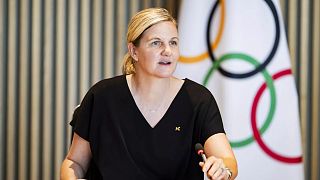Zimbabwe
A first of its kind in Africa, Zimbabwe’s Zimbaqua mine is uniquely employing an entirely female workforce.
Located near Karoi, a town 200 km northwest of the capital Harare, Zimbaqua is changing the lives of women in the region.
Zimbaqua provides relief to the plight of women in the region, most of them unemployed. “My family suffered a great deal before I joined the mine,” said Sylvia Mugova, a miner and mother of five. “My children were consistently suspended from school due to lack of fees. My husband does not work. We also take care of my mother-in-law. All I wanted was an opportunity to provide for my family, and mining has given me that.”
Like many other women with little or no formal education, Mugova is one of 35 women employed by Zimbaqua. However, the workforce can go up to 60, with other women taken in as contractors. These are significant figures because only 15% of Zimbabwe's 7,6 million women work as artisanal and small-scale miners.
The miners dig the 50-hectare surface for deposits of aquamarine. This is the name used for gem-quality specimens of the mineral beryl, a blue-hued stone highly prized by international wholesalers and jewellery designers.
The task is not easy as women use hammers weighing between 12 and 16 kilograms. They are equally trained to manage chisels, drills, and rock crushers to free the precious stones. The workers receive a stable monthly salary of just under $300 in return.
In this male-dominated industry, until recently, the stones were shipped to Bangkok for cutting and polishing. However, the firm has begun training some women to take on these duties on-site - another empowering move.
According to the Mine Manager, Rumbidzai Gwinji said Zimbaqua is setting a new standard for mining. “The project is elevating the community by providing solutions for women. The ladies no longer wait and hope that the husband will put a meal on the table. For single mothers, there is no better security than a reliable source of income. They can now take care of the children, send them to school and feed them. They are now stable financially,” she shared.
Zambiqua was founded in 2019 by Patrick Zindoga and Iver Rosenkrantz to create unique opportunities for women. Cofounder Zindoga said the idea initially received push-back. “People thought the concept was ludicrous. It was the usual argument that ladies cannot do what men can do,” Zindoga explained. “It was a no-brainer for us because we know how to institute business models that work. Women are more trustworthy, committed, and responsible as they are expected to be pillars of strength. We have given them on-the-job training and the ladies have caught up. They are doing better than we expected and I think they will put men to shame.”
The firm currently exports to India and Thailand. It is opening a jewelry line to showcase the aquamarine mined by its all-female workers.
"We are excited to start selling and exporting finished products. We hope to expand and create sustainable opportunities for more women in the country," concluded Zindoga.












02:17
Uma Thurman returns to her action roots in The Old Guard 2 opposite Charlize Theron
01:51
Somalia celebrates the International Day for Women in Maritime
Go to video
To avoid conflicts with locals, Zimbabwe tracks elephants with GPS
02:13
Congo’s rebel-held coltan mines continue to pump ore for world’s tech
Go to video
Putin hosts talks with African leaders on security
11:18
Africa accelerates towards energy and economic sovereignty with DRC mining growth {Business Africa}